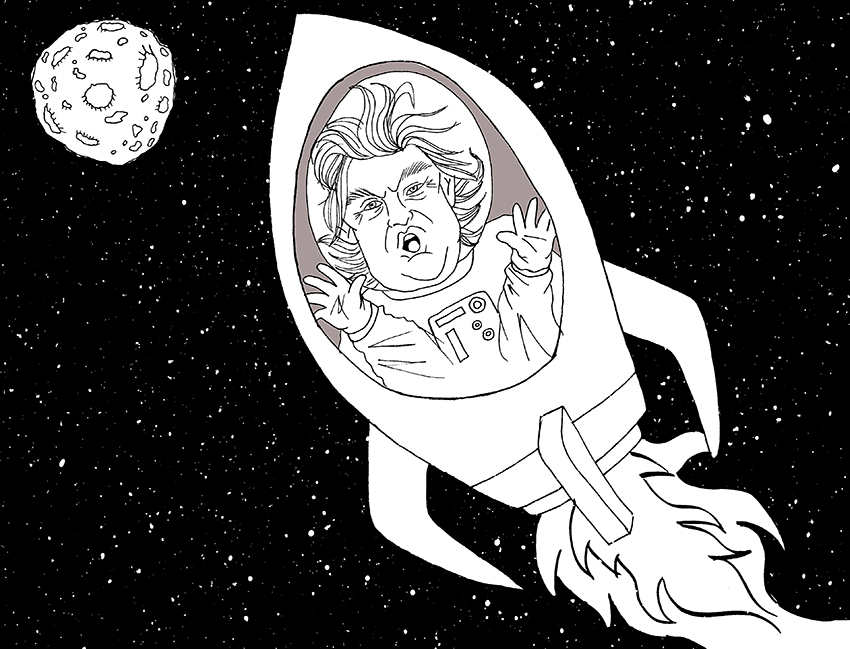The biggest national news story of the past week concerned something President Donald Trump didn’t do: He and his party failed to pass a bill repealing and replacing Obamacare. The health care debacle represented the worst political defeat so far for the president, whose approval rating stands at 35 percent, per Gallup, and whose 69 days in office have followed a solid pattern of malice tempered by incompetence. He would take away health insurance from 24 million people, if only he knew how.
But enough about the president’s failures, which are being covered in depth by the rest of the lying, failing dishonest media. Let’s talk about something Trump actually did manage to do, for which he actually got some positive press. Last week, he also proposes an (extremely modest) increase of $200 million in funding for the agency.
We’re 45 years out from the last time human beings walked on the moon — far enough removed from the Space Age that simply not cutting NASA’s budget scores you points with space enthusiasts if you’re president. And there’s some good stuff in this bill, including the TREAT Astronauts Act, which requires that NASA provide lifelong health care for its astronauts — making it the only health care bill Trump actually got to sign last week. But below the surface, this law is yet another expression of the Republican Party’s usual contempt for the facts, along with Trump’s well-documented disdain for details.
For starters, the budget proposed in the bill asks that NASA eliminate four of its Earth science missions, including one in charge of satellites that monitor Earth’s temperature, and eliminates provisions for NASA’s collaboration with the National Oceanic and Atmospheric Administration to study Earth’s atmosphere. In short, the bill wants NASA to ignore climate change. That doesn’t come as a surprise: Sen. Ted Cruz, one of the bill’s authors, has spoken in the past about his belief that NASA should bury its head in the Martian sand on this issue.
In addition, while the bill embraces a manned mission to Mars, it puts a damper on other proposed NASA missions, like the Asteroid Redirect Mission — which sought to bring a sample from a near-Earth asteroid into lunar orbit, where it could be studied — and another tentative project that would have sent a lander to Europa, one of Jupiter’s moons. While not as flashy as a Mars mission, these missions could have been scientifically lucrative: The United States has sent four landers (and three rovers) to Mars, but it hasn’t sent any to Europa, which is believed to harbor liquid water below its frozen surface.
Lastly, even if you’re part of the Mars-or-bust crowd, this bill has problems. It’s extremely short on specifics for how we’re going to get to the Red Planet, and it still doesn’t allocate funds for the mission. As SpaceX founder Elon Musk noted, “this bill changes almost nothing about what NASA is doing. Existing programs stay in place and there is no added funding for Mars.”
While Musk’s own plan to land humans on Mars by 2022 is wildly unrealistic, he has a point here. Trump recently got a taste of how lofty promises can crumble under the weight of complicated reality, and if he couldn’t repeal a law his party has been promising to eradicate for seven years, he’s going to have a hard time with rocket science.
Groves is a government sophomore from Dallas. He is a Senior Columnist, follow him on Twitter @samgroves





















